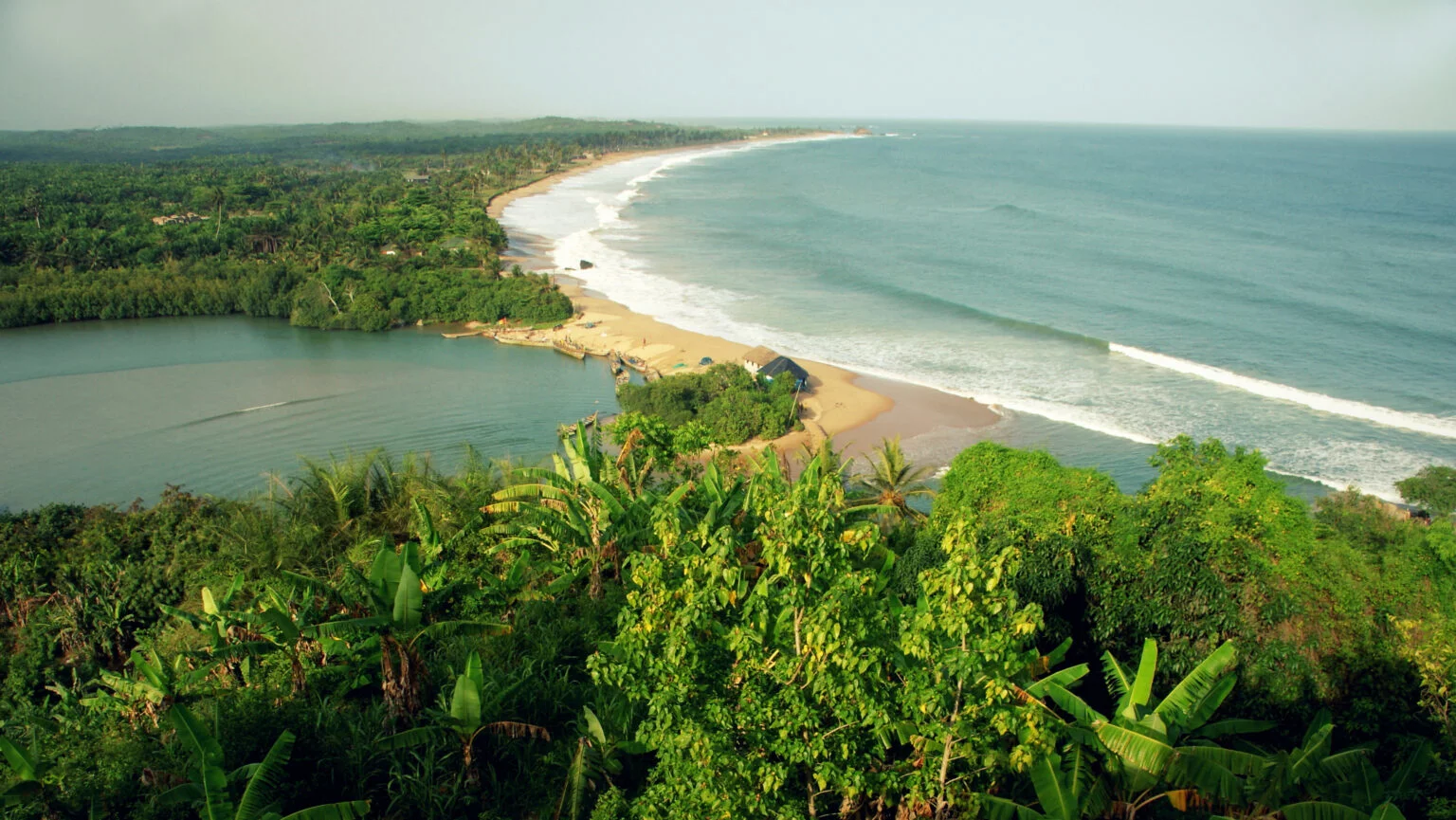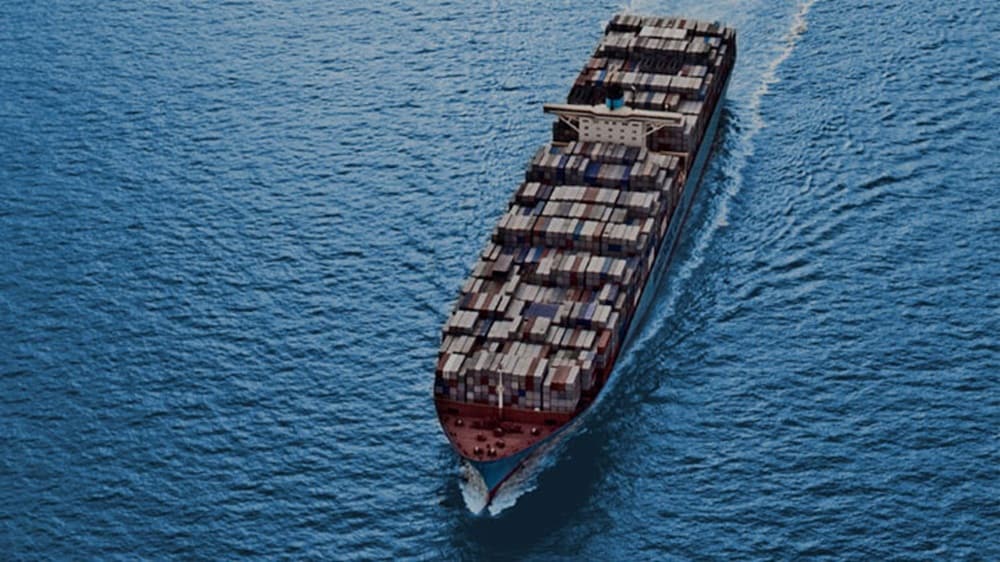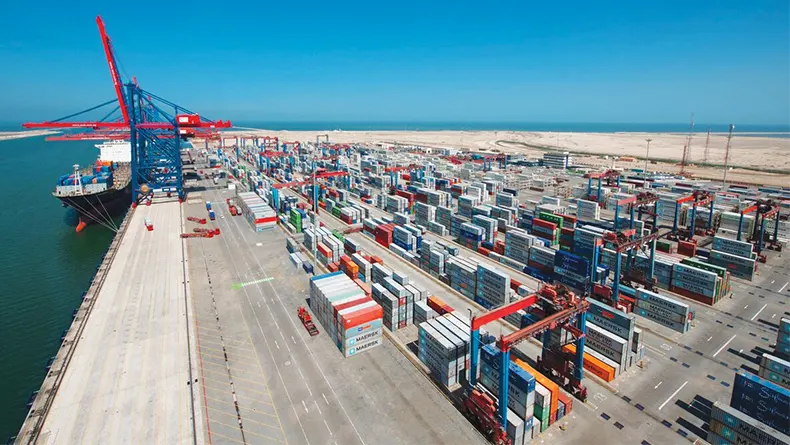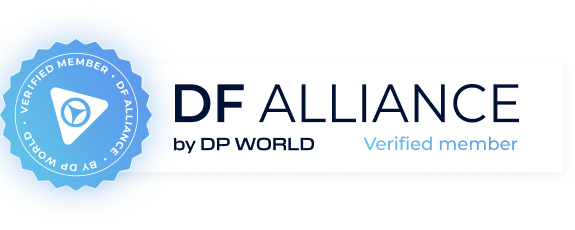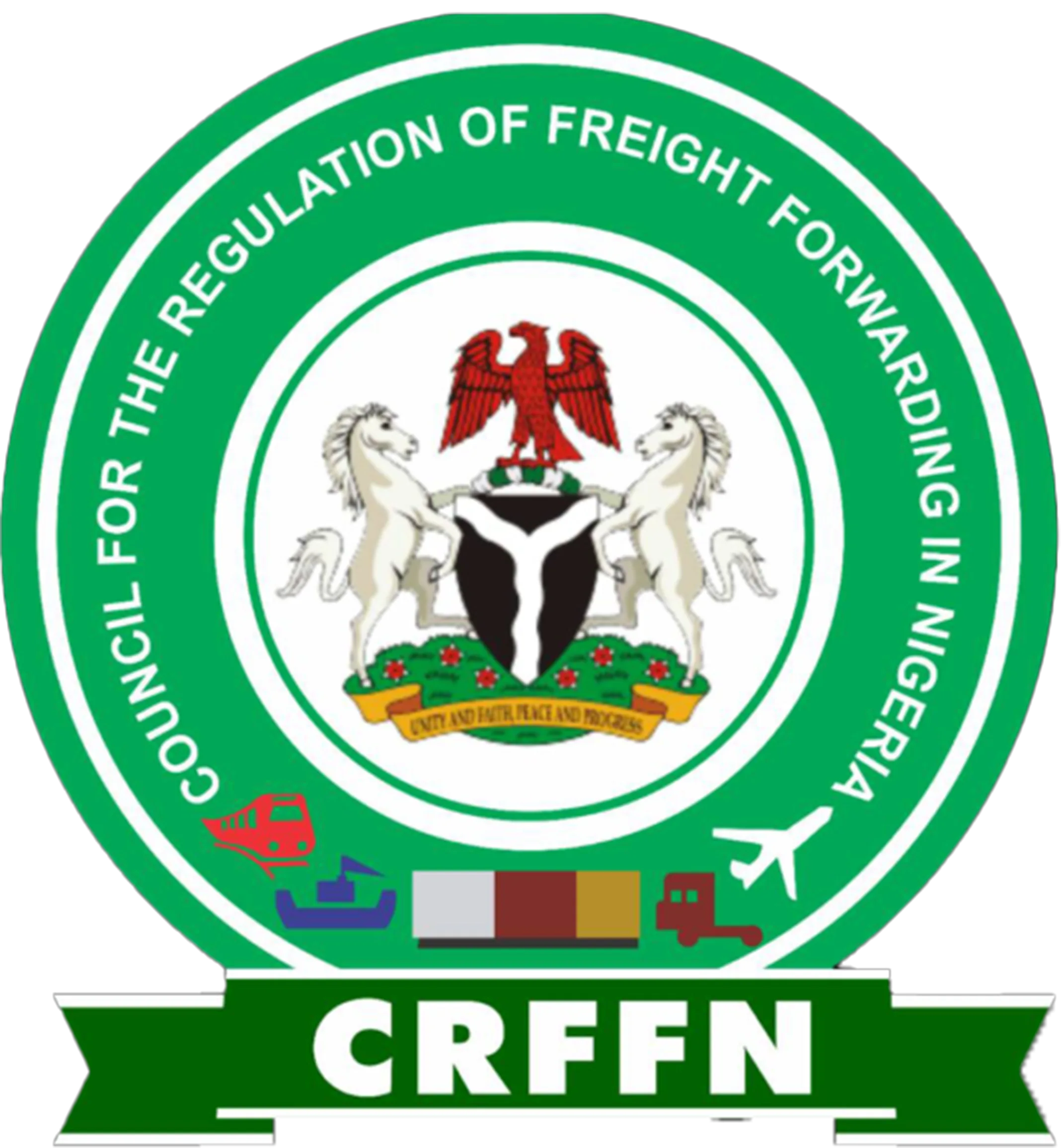Connecting Mozambique across Africa and beyond
Mozambique’s unique trade landscape, with its diverse natural resources like vanilla, cloves, and minerals, presents both opportunities and complexities. Limark, a trusted partner in African logistics, simplifies complex import and export processes in Madagascar.
Our deep understanding of local regulations, coupled with our extensive network and efficient operations, ensures smooth and timely delivery of your shipments. From customs clearance and documentation to warehousing and distribution, Limark offers tailored solutions for Mozambique’s unique commodities, handling every aspect of your supply chain with precision and care.

Import regulations
Importing goods to Mozambique requires navigating specific procedures and documentation. Here’s a breakdown of the essential requirements:
Product categories requiring import licenses/permits
Food and Agricultural Products
- Imports of meat, dairy products, fish, grains, fruits, and vegetables require import permits from the Ministry of Agriculture and Food Security (MASA).
- Phytosanitary certificates are necessary for plants and plant products.
- Import licenses are required for specific products like sugar, wheat, and rice.
Pharmaceuticals and Medical Devices
- The Ministry of Health (MISAU) regulates the import of pharmaceuticals and medical devices
- Marketing authorization (AMM) is required for all medicines
- Medical devices must be registered with MISAU
Chemicals and Hazardous Materials
- The Ministry of Land and Environment (MTA) regulates the import of chemicals and hazardous materials.
- Import permits and compliance with safety data sheets (SDS) are mandatory.
- Proper packaging, labeling, and transportation regulations must be adhered to.
Vehicles and Spare Parts
- The National Institute of Land Transport (INATTER) regulates the import of vehicles and spare parts.
- Import permits are required, and vehicles must meet specific age and emission standards.
Other regulated products
Additional import licenses or permits may be required for specific products like telecommunications equipment, explosives, firearms, and cultural artifacts.
Prohibited and restricted imports
Prohibited
- Narcotic drugs and psychotropic substances
- Pornographic and obscene materials
- Counterfeit and pirated goods
- Hazardous waste
- Toxic chemicals not approved by MTA
- Weapons and ammunition (except with authorization)
- Right-hand drive vehicles (except for special purposes)
- Used tires
Restricted
- Live animals and animal products (require health certificates)
- Plants and plant products (require phytosanitary certificates)
- Used clothing and footwear
- Alcohol and tobacco products (subject to high taxes)
- Certain types of plastic bags
Relevant agencies
- Customs Authority of Mozambique (AT)
- Ministry of Industry and Commerce (MIC)
- Ministry of Agriculture and Food Security (MASA)
- Ministry of Health (MISAU)
- Ministry of Land and Environment (MTA)
- National Institute of Land Transport (INATTER)
Free Time
- Typically 7 days for general cargo and 14 days for containerized cargo after discharge.
- Varies depending on the shipping line and port.
Demurrage charges
- Applied when the free time is exceeded
- Calculated per container, per day
- Rates vary depending on the shipping line, container size, and time elapsed.
Detention charges
- Applied when the container is held beyond the agreed-upon time for return to the shipping line.
- Separate from demurrage charges.
- Rates vary depending on the shipping line and container size.
Storage Limitations
- Port terminals have limited storage capacity
- Containers not cleared within the allowed time may be moved to an off-dock depot at the importer’s expense
Applicable fees
Demurrage, detention, and storage fees are outlined in the shipping line’s tariff or the port’s regulations.
Commercial Invoice
- Detailed description of goods (including HS codes)
- Quantity, weight, and value of goods (in USD or MZN)
- Incoterms (International Commercial Terms)
- Payment terms
- Consignee and consignor details
Packing List
- A detailed list of all items in each package
- Description, quantity, weight, and dimensions of each item
- Package markings and numbers
Bill of Lading/Airway Bill
- Evidence of the contract of carriage between the shipper and carrier
- Details of the shipment, including the consignee, consignor, and port of loading/discharge
Certificate of Origin
- Declares the origin of the goods
- May be required for preferential tariff treatment under trade agreements (e.g., SADC)
Import License/Permit (for regulated goods)
- Issued by the relevant government agency
Certificate of Conformity (CoC)
- Required for certain regulated products to ensure compliance with Mozambican standards.
- Issued by an authorized inspection company.
Other certificates
- Phytosanitary certificate (for plants and plant products)
- Health certificate (for animals and animal products)
- Certificate of analysis (for chemicals and food products)
- CITES permit (for endangered species)
Import licenses and permits
-
Identify the Regulating Agency:
- Determine the specific ministry or agency responsible for your goods based on the product category.
-
Gather Required Documents:
- Proforma invoice or commercial contract
- Technical specifications and data sheets (if applicable)
- Certificates of origin, analysis, quality, etc.
- Business registration documents (for companies)
- Taxpayer identification number (NUIT)
-
Submit Application:
- Complete the import license application form
- Submit the application along with required documents and fees to the relevant agency
- Applications are typically submitted online or in person.
-
Processing and Approval:
- The application will be reviewed and processed by the agency
- Processing times vary but can take several weeks
- If approved, the import license will be issued
-
Validity and Renewal:
- Validity periods vary depending on the product and agency.
- Renewal procedures involve submitting a new application with updated documents before the expiry date.
-
Costs
- Import license fees vary depending on the product and agency.
- Additional costs may include inspection fees and testing fees.
Customs clearance procedures
-
Pre-Shipment Inspection (PSI):
- Mandatory for most commercial shipments valued at over USD 2,500.
- Conducted by authorized inspection companies in the country of origin.
- Verifies the quality, quantity, and value of goods.
-
Arrival and Unloading:
- The vessel or aircraft arrives at the port or airport.
- Cargo is unloaded and placed in customs control.
-
Document lodgment and declaration:
- The importer or their agent lodges import documents (commercial invoice, packing list, bill of lading, etc.) with customs.
- An electronic declaration is submitted through the e-Customs system.
-
Assessment and Payment:
- Customs assesses import duties, taxes, and fees based on the HS code, value, and origin of the goods.
- Importer or their agent pays the assessed amount.
-
Release of goods
If the shipment complies with all regulations and requirements, and duties/taxes are paid, customs releases the goods.
Port/Terminal operations
Major seaports
- Port of Maputo: The largest and busiest port, handling containerized, bulk, and liquid cargo.
- Port of Beira: A major port for transit cargo to landlocked countries like Zimbabwe, Zambia, and Malawi.
- Port of Nacala: A deep-water port with container and bulk handling facilities.
Air Cargo Hub
- Maputo International Airport: The main airport for air cargo imports.
Cut-off Dates
- vary depending on the shipping line and destination
- Confirm with your shipping agent or freight forwarder well in advance
Documentation Requirements at Terminals
- Ensure all required documents are submitted electronically through the e-Customs system before the shipment arrives
- Original documents may be required for verification at the terminal
Container Pickup/Drop-off and Storage
- Coordinate with your shipping agent or freight forwarder for container pickup and drop-off procedures.
- Be aware of free time limitations and potential demurrage/detention charges.
Disclaimer: This information is based on the latest available data and may be subject to change. Always consult with relevant authorities and experts for the most up-to-date and accurate information.
Export regulations
Get a detailed guide that provides an in-depth look into every aspect of the export process to ensure your goods are shipped efficiently and in compliance with all legal standards.
Product categories requiring export licenses/permits
Coal: As Mozambique’s largest export, coal requires a specific export license from the Ministry of Mineral Resources and Energy (MIREME). The license application requires a detailed export plan, including the quantity, quality, and destination of the coal. Environmental impact assessments and compliance with safety standards are crucial for approval.
Natural Gas: The burgeoning natural gas sector in Mozambique necessitates export licenses from MIREME. These licenses often involve complex negotiations with international energy companies and require adherence to stringent environmental and social impact assessments.
Timber and wood products: Due to concerns about deforestation and illegal logging, the export of timber and wood products is strictly regulated by the Ministry of Land and Environment (MTA). Exporters must obtain permits and provide evidence of legal and sustainable sourcing.
Agricultural Products (Cashew Nuts, Sugar, Tobacco): These key agricultural exports require licenses from the Ministry of Agriculture and Food Security (MASA) to ensure quality control, traceability, and compliance with international standards.
Seafood (Shrimp, Prawns, Lobster): Exporting seafood requires permits from the Ministry of Sea, Inland Waters and Fisheries (MIMAIP). These permits often come with catch quotas to ensure sustainable fishing practices.
Other regulated products: Other products that may require export licenses or permits include minerals (e.g., titanium, tantalum), precious stones, scrap metal, and certain chemicals.
Prohibited and restricted exports
Prohibited
- Narcotic drugs and psychotropic substances
- Pornographic and obscene materials
- Counterfeit and pirated goods
- Hazardous waste (Basel Convention)
- Ozone-depleting substances (Montreal Protocol)
- Weapons and ammunition (except with authorization from the Ministry of Defense)
- Unprocessed precious stones and metals (to promote local value addition)
Restricted
- Endangered species and products (CITES permits required)
- Live animals and animal products (require health certificates)
- Plants and plant products (require phytosanitary certificates)
- Unprocessed timber and wood products
- Certain chemicals and hazardous materials
Relevant agencies
- Customs Authority of Mozambique (AT)
- Ministry of Industry and Commerce (MIC)
- Ministry of Mineral Resources and Energy (MIREME)
- Ministry of Agriculture and Food Security (MASA)
- Ministry of Sea, Inland Waters and Fisheries (MIMAIP)
- Ministry of Land and Environment (MTA)
Required documents
Commercial Invoice: Detailed description of goods (including HS codes, specifications, quantity, weight, value), Incoterms, payment terms, and consignee/consignor details.
Packing List: Detailed list of all items in each package, with description, quantity, weight, dimensions, and package markings.
Bill of Lading/Airway Bill: Evidence of the contract of carriage between the shipper and carrier, including details of the shipment, consignee, consignor, and port of loading/discharge.
Certificate of Origin: Declares the origin of the goods, and may be required for preferential tariff treatment under trade agreements.
Export Declaration (DEX): Electronic declaration submitted through the e-Customs system, providing detailed information about the shipment.
Export License/Permit (if applicable): Issued by the relevant government agency.
Export declaration process (through e-Customs):
- Register as an exporter on the e-Customs platform.
- Prepare and submit the DEX electronically through e-Customs.
- Customs assesses the declaration and may conduct inspections.
- If compliant, customs approves the export and issues an export permit (if required).
- Pay any applicable export duties or taxes.
Required export certificates
- Phytosanitary Certificate (for plants and plant products): Issued by the National Plant Protection Organization (NPPO)
- Health Certificate (for live animals and animal products): Issued by the National Veterinary Directorate (DINAV)
- Certificate of Analysis (for certain products): Issued by an accredited laboratory to confirm compliance with quality and safety standards
- CITES Permit (for endangered species): Issued by the Administration of Conservation Areas (ANAC)
- Origin Certificate (for preferential trade): Issued by the Mozambique Chamber of Commerce (CCM)
Major Ports
- Port of Maputo: The largest and busiest port, handling containerized, bulk, and liquid cargo
- Port of Beira: A major port for transit cargo to landlocked countries like Zimbabwe, Zambia, and Malawi
- Port of Nacala: A deep-water port with container and bulk handling facilities
- Port of Pemba: A smaller port primarily serving the northern region.
Cut-off Times and Procedures
- vary depending on the shipping line, destination, and type of cargo
- Check with your shipping agent or freight forwarder for specific cut-off times
- Procedures typically include document submission through e-Customs, customs clearance, security screening, and container loading
Container Storage and Free Time
- All major ports offer container storage facilities
- Free time for storage varies depending on the port and shipping line, usually ranging from 3 to 7 days
- Storage fees apply after the free time expires
Returning empty containers
- Coordinate with your shipping line or agent to return empty containers to the designated depot.
- Failure to return containers on time may result in detention charges.
Duties, taxes, and fees
Export Duties: Generally, Mozambique does not impose export duties on most goods. However, specific export taxes or royalties may apply to certain products (e.g., minerals, timber).
Other fees: Customs processing fees, document handling charges, terminal handling charges, storage fees (if applicable), and any specific taxes or levies related to the exported product.
Disclaimer: This information is based on the latest available data and may be subject to change. Always consult with relevant authorities and experts for the most up-to-date and accurate information.
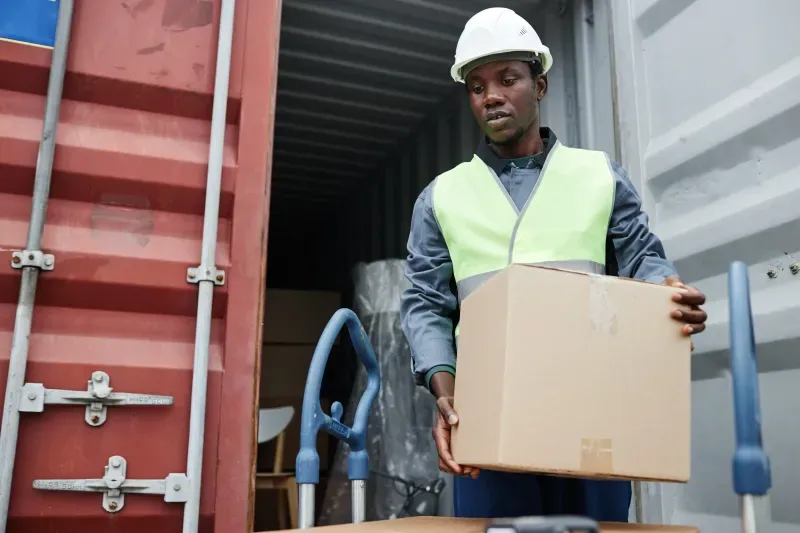
Seamless cross-border shipping to and from Mozambique
Our deep understanding of Mozambique’s evolving regulatory landscape ensures seamless and compliant shipping solutions for your business. With an ever-expanding footprint in the region, we are committed to providing reliable, cost-effective logistics services that cater to your specific needs. Our expertise simplifies complex trade procedures, allowing you to focus on growing your business.
Our team of seasoned local experts, coupled with our commitment to high-quality standards, ensures your cargo is handled with utmost care and delivered on time. We leverage our vast network and streamlined processes to optimize your supply chain, reduce costs, and enhance overall efficiency. Partner with Limark Logistics for a seamless and reliable shipping experience in Mozambique.
Get Expert Guidance
Contact our regional experts
Partner with experienced freight forwarders and customs brokers for seamless shipping to and from Mozambique. Ensure full documentation compliance with the guidance and logistics services of our team.
Sales enquiries
We’re happy to talk to you about your shipment needs anytime. Please get in touch with us.
Ready to ship?
Get your shipment moving faster. Request a quote today for our end-to-end supply chain services.
Other African Countries
